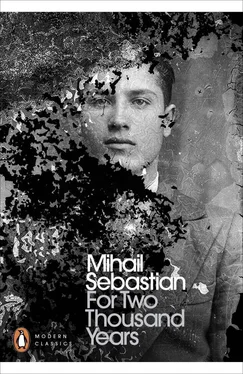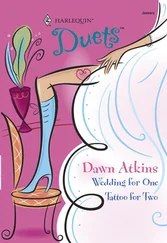Maurice Buret, without his physical presence, his modest and attentive smile, without the intelligence that enables him to simulate sensitivity and emotion, would be a horrible character. Clarity, order … Is that enough to make a person? God knows how long I’ve stumbled after such order, how many shadows I’ve wrestled with for such clarity. But isn’t this kind of victory too sterile, too arid?
I take my revenge by transcribing Descartes:
… ne recevoir jamais aucune chose pour vraie que je ne la connusse évidemment être telle, c’est-à-dire éviter soigneusement la précipitation et la prévention et … ne comprendre rien de plus en mes jugements que ce qui se présenterait si clairement et si distinctement à mon esprit que je n’eusse aucune occasion de la mettre en doute.
What a miserly rule.
In Boulevard Haussmann, at the Rice offices, I was met by an extraordinary character: Phillip Dunton. I had to embrace him. He was unprepared for such a show of feeling and was rather taken aback, standing there with his pipe in his mouth.
‘Forgive me, Phill, it’s just I’m so glad to see you …’
He’s straight in from Romania and his arrival has somehow awoken in me a thousand images of over there — of people, streets, newspapers, cafés, the whole thing, everything that slowly faded away here, where I’ve been subject to so many new impressions. Phillip Dunton is a meticulous, slow-talking fellow (a habit I’d say he has picked up from chess, where you need a quarter-hour to consider each move). I bombarded him with questions and he didn’t know which to answer first.
He’s going to spend a few days here until old Ralph turns up, as he soon must.
He doesn’t really know what he’ll do after that. He’s certainly not going back to Uioara, where there’s no longer any work for him. He’s going to try to get a year’s leave from Rice Enterprises so he can go to America to complete some laboratory experiments and personal observations. Possibly to publish there the study which he completed a draft of in Uioara. When the year’s up he’ll go to any place Rice sends him. Anywhere: but he’d prefer Russia.
We lunched together, me impatient to hear him talk, he as calm and relaxed as I remember him. I could hardly restrain myself from asking about Marjorie, but I feared opening a well-guarded wound. My fears were unfounded. He spoke about Marjorie when he remembered her, effortlessly and without embarrassment. He considers what has happened to be straightforward. They’ve separated as good friends. He attended her civil marriage ceremony and she, three weeks later, saw him to the station.
‘It never for a moment occurred to me that I might have trouble with Marjorie. She truly is intelligent and, really, that’s what allowed us to stay married so many years. We couldn’t have asked for more. I knew she’d leave one day and for a long period the only question for me was with whom it would be. When we met at Uioara, I thought you might be the one. I watched you with a fair degree of interest and — please believe me — a fair degree of sympathy. I don’t know why, but nothing happened. Then, when Pierre Dogany appeared, I thought it would be him. I confess, it didn’t cross my mind once that it could be Marin Dronţu. I laughed when I realized: it seemed grotesque. Now, though, with the passage of time, I see it was a piece of luck. Poor Pierre Dogany has the great disadvantage of being in love with Marjorie, but what she needs is to love, not to be loved. And she loves Dronţu. You should have seen her leaving the Town Hall on his arm: she was radiant.
‘She’s a good partner. I don’t think I’ll ever forget her and I wouldn’t swear that I won’t ever go back to Romania to see her and talk of all that’s passed.’
*
Old Ralph T. Rice came for a couple of days and brought the master’s response to my report. In theory, my viewpoint has been accepted. If work starts, it will be in Dieppe. The advantages of the site are obvious, and there are no commercial disadvantages over Le Havre. But will work start? Hard to say. The Crash has given him a bad fright. What scares him even more than the Crash is the mood in Romania.
‘You’ve only been away a year,’ he said, ‘but if you went back now there’s much you’d no longer recognize. Something’s going on over there. Something’s brewing.’
A final decision on the fate of the French project won’t be taken until later, towards autumn, when I hope the situation will be clearer. But the decision to scale back the project from what was originally planned seems already to have been taken. Possibly a network of small sales and distribution points will be set up throughout France and an attempt made to promote Rice petrol and oil in the motoring world. Modest enough, compared to what we once wanted to do.
I tried to get a clearer idea of why the old man — usually so calm and strong-willed — is alarmed. I inquired at length, but he was unable to tell me much. Not even Phillip Dunton, so nonchalant and sceptical about ‘serious events’, knew very much.
It seems Uioara has experienced some trouble over the past year: a number of small strikes, not serious in themselves but recurrent, as well as tussles between workers and management and a series of negotiations about wages. Along with the eternal outbursts from the people of Uioara concerning their eternal plum trees whenever a new well is sunk and yet another wave of drilling mud is misdirected. But Ralph Rice isn’t the kind of man to be rattled by such trifles. There must be something else lurking in the background. I’m going to write to the master to ask.
I sense that European matters are hard to judge from Paris. I note with surprise, and not for the first time since arriving here, that Paris is a poor vantage point for viewing the continent. There are too many certainties here, too many habits of thought for the view from Paris not to be distorted. An ‘instability factor’ should be worked into any problems we solve on the banks of the Seine. Security provides a poor environment for reflection.
I went to see some Chagall paintings in the Rue de La Boétie. What tumult! The flowers are white, dreamlike, and beneath them, in shadow, the weary heads of the lovers — with pale brows and long hands and smoky gazes — detach themselves. Everything — the colours, the sky, the trees — is washed in light other than daylight, in shadows that are not those of the night. Where do these strange plants and petrified trees come from? The sun is diffuse, as if smothered beneath the burden of several superimposed oceans.
From what mountain does this hay cart descend, blue like a retouched photograph, unreal and solemn? The season is weary, with remembered light, with fields from dreams, with windows that open inwards. The grass is a brutal green in places, with an excess of colour and a straining at life that betrays a desperate nostalgia for the sun.
The timidity of the Jew before open country. His awkwardness in the face of plants, his reserve before animals! Of all the forms of loneliness, this is the hardest. It’s so hard to get close to a tree in a simple manner when you’ve never lived close to one.
Chagall loves grass, hay, trees, but doesn’t know how to love them. There’s too much fervour in his love and then too much sadness. These are arrested impulses, enthusiasms without the courage to go all the way, shouts that get tripped up over a smile. Humour? Perhaps. But, more, the inability to escape or renounce yourself, to go tumbling among stones and weeds, to shut up shop and pull down the evening shutters on your personal problems and step fully into the sunlight, without memories or nostalgia.
Читать дальше












